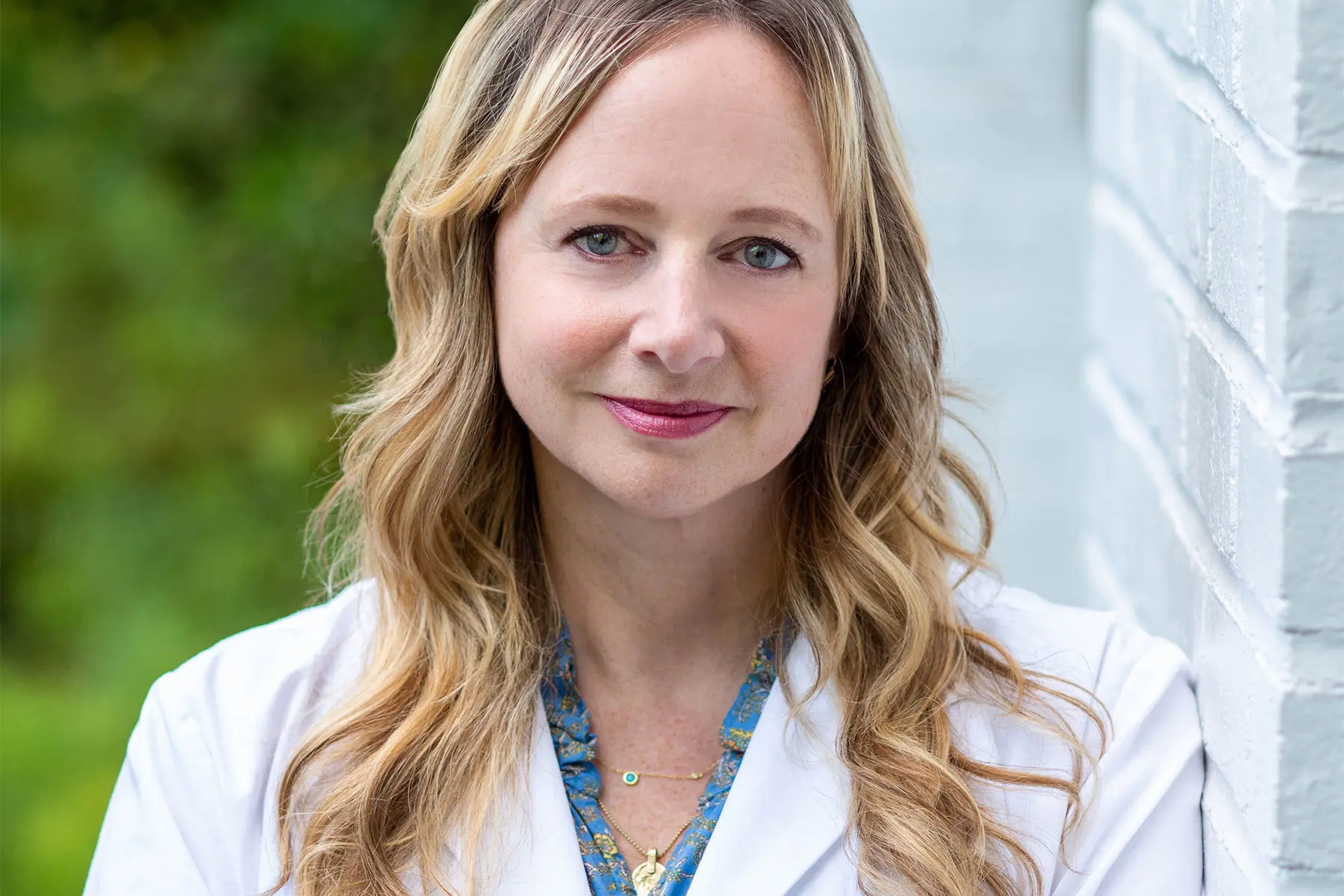I experienced menopause three times. Now I want to help women everywhere
3 minute read

Between cancer and surgery, I experienced menopause 3 times.
I am excited to be working with Alloy as a Medical Advisor and would like to introduce myself to the Alloy community. My path to becoming a menopause specialist has been deeply informed by my own experience as a patient navigating menopause.
In 2001, I was 28, newly married, and a busy second-year OBGYN resident when I was diagnosed with aggressive stage two breast cancer. This shocking diagnosis came just a month after losing my mother to ovarian cancer. That was the start of my journey into menopause, not once–but three times!
Round One
First, I was plunged into menopause during my intense chemotherapy, juggling the side effects of chemo with menopause symptoms. Eventually, about six months after finishing treatment, my ovarian function recovered and my periods returned. I started to feel like myself again. I went on the estrogen modulator Tamoxifen with no problems, then took a break to get pregnant and was blessed to have a healthy baby girl.
Learn more about menopause symptoms
Round Two
Immediately after the birth of my daughter, my medical team decided it was best for me to go back on Tamoxifen and this time add Lupron, which reduces the production of estrogen and progesterone by the ovaries. This plummeted me back into menopause. So there I was at age 31 in round two of menopause! The Lupron-induced menopause symptoms were relentless and harsh, and after about a year, I took a break from the Lupron.
Round Three
A few years later, I decided to remove both my ovaries surgically to reduce my risk of ovarian cancer. Well, the third time was NOT a charm, to say the least! Each round of menopause brought its challenges, but surgical menopause was the most extreme and immediate. I suffered and felt very alone. I did not have many peers my age dealing with menopause, let alone a breast cancer diagnosis.
Sleep disturbances, hot flashes, fatigue, mood changes, and weight gain were the hardest things for me. The most frustrating thing was that no one offered me any treatment options. The oncologist knew nothing about menopause and the gynecologist was afraid of my breast cancer history–so I muddled through and suffered.
Misconceptions about MHT and Cancer
At the same time, I was seeing more women in my private OBGYN practice with the same complaints, and I openly shared my story with them. I learned so much by listening to their own frustrations and experiences.
Thus began my quest for solutions for myself and my patients. I knew I needed to seek out more professional education on menopause. In OBGYN residency there is basically no training in it. I read everything I could find, and eventually found The Menopause Society and became a certified menopause practitioner. I focused my practice on gynecology only, helping women navigate the areas of female health often neglected: perimenopause and menopause, the unique healthcare needs of female cancer survivors, and those at high risk for breast cancer.
By sharing my personal story and working with Alloy, I hope to push the collective dialogue on women’s health forward. We need to move away from a dogmatic, outdated, and frankly misogynistic approach to women’s health across the board and towards science and evidence based healthcare. Women deserve more. I am proud to be working with Alloy to help accomplish this!
For more information about Dr. Menn, check out her website www.drmenn.com
Follow her and Alloy on Instagram and TikTok @drmennobgyn
Subscribe
Go ahead, you deserve to